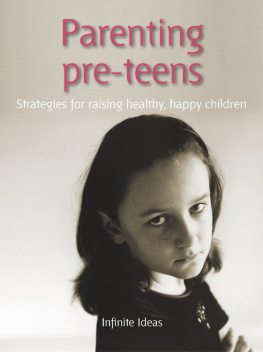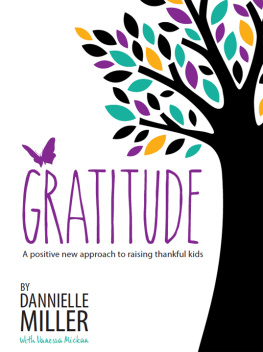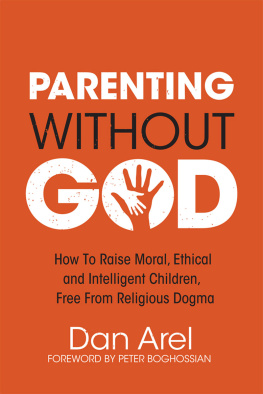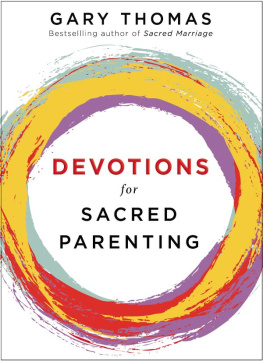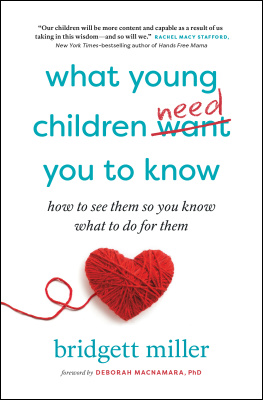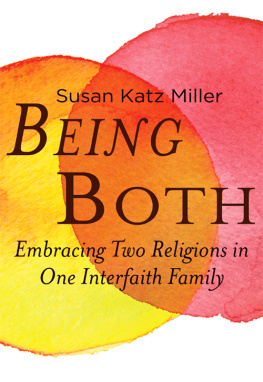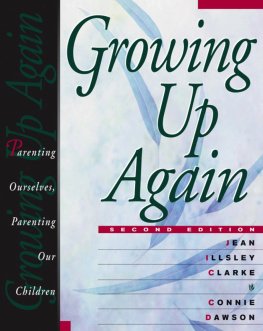1
The Families and Faith Series
The Families and Faith Series is devoted to exploring the relationship between the spiritual life and our closest human relationships. From one generation to the next, faith and families are deeply intertwined in powerful ways. Faith puts all of life, including family life, in such a large perspective that it invites the gratitude, wonder, and hope so badly needed in the middle of the complexities and struggles of existence. On the other hand, faith becomes real only as it lives through concrete human relationships. Religion needs families and communities where the generations gather together and share and celebrate what it means to love God and to love others. At their best, faith and families are immersed in grace, and this series hopes to be a resource for those seeking to make love real in their families, congregations, and communities.
Series Editors
Diana R. Garland, director, Baylor Center for Family and Community Ministries Baylor University
J. Bradley Wigger, director, Center for Congregations and Family Ministries Louisville Presbyterian Theological Seminary
Titles in the Families and Faith Series
Sacred Stories of Ordinary Families: Living the Faith in Daily Life
Diana R. Garland
Let the Children Come: Reimagining Childhood from a Christian Perspective
Bonnie J. Miller-McLemore
The Power of God at Home: Nurturing Our Children in Love and Grace
J. Bradley Wigger
Seasons of a Familys Life: Cultivating the Contemplative Spirit at Home
Wendy M. Wright
Real Kids, Real Faith: Practices for Nurturing Childrens Spiritual Lives
Karen Marie Yust
Let the Children Come
Reimagining Childhood from a Christian Perspective
Bonnie J. Miller-McLemore
Fortress Press
Minneapolis
LET THE CHILDREN COME
Reimagining Childhood from a Christian Perspective
Copyright 2019 Fortress Press, an imprint of 1517 Media. All rights reserved. Various text changes and the author biography are new to the 2019 Fortress Press edition and are not part of Wileys original edition.
Copyright 2003 by John Wiley & Sons, Inc. All rights reserved.
This edition published by arrangement with John Wiley & Sons, Inc. Except for brief quotations in critical articles or reviews, no part of this book may be reproduced in any manner without prior written permission from the publisher. Email copyright@1517.media or write to Permissions, Fortress Press, PO Box 1209, Minneapolis, MN 55440-1209.
Unless otherwise noted, Scripture quotations are taken from the New Revised Standard Version Bible, copyright 1989, Division of Christian Education of the National Council of the Churches of Christ in the United States of America. Used by permission. All rights reserved.
Cover design: Alisha Lofgren
Cover image: iStock / Green Watercolor; Illustration / Alisha Lofgren
Print ISBN: 978-1-5064-5457-3
eBook ISBN: 978-1-5064-5458-0
The paper used in this publication meets the minimum requirements of American National Standard for Information Sciences Permanence of Paper for Printed
Library Materials, ANSI Z329.48-1984.
Manufactured in the U.S.A.
With love for my parents,
Geraldine Cobb Miller and John McAdow Miller
Contents
A wife, mother of three sons, scholar of religion and psychology, and professor of practical theology, Bonnie J. Miller-McLemore has excellent qualifications with which to address the precarious situation of children in modern North America. And she does so expertly. Her treatment is not only engagingly written and filled with common sense but also theologically illuminating and pastorally astute.
Miller-McLemores earlier work, Also a Mother: Work and Family as Theological Dilemma (1994), captured the ambiguous situation of young Christian parentsespecially womenwho struggle to reconcile their ties and responsibilities to their families with their vocational projects and commitments in the workplace. In this new endeavor, she turns her sights from the identity and role of the parent to the identity and uniqueness of the child. While most modern theories and analyses of childhood have concentrated on adults ideas of children, child-rearing practices, or obligations toward children, Miller-McLemore takes a hard look at the roles of children themselves in different social eras and asks what is distinctive and problematic about our own age.
She catches several confusing cultural trends that make raising children a special challenge today. For example, while we sentimentalize children and see them as immense sources of emotional satisfaction, we are afflicted with a high level of social indifference toward the welfare of other peoples children. Moreover, even while pop psychology extols the innocence of children, they are targeted as consumers in our market-driven economy. On the one hand, parents are held morally responsible for any negative behavior on the part of children; on the other, childrens desires are manipulated so that an array of products will be profitable. Society as a whole avoids providing economic support for the kinds of housing, health care, child care, and educational systems that help parents do a good job. In the face of all these stresses, strains, and outright assaults on the well-being of children, religion seems ineffectual. Churches, faith communities, and religious traditions seem to offer very few solutions or insights to the average person.
Miller-McLemores thesis is that a religious vision can support the claim that children must be fully respected as persons, valued as gifts, and viewed as agents. Children are not innocent blank slates with no God-given capacity for spiritual experience, moral awareness, or decision making. Miller-McLemore borrows the image of the knowing child to communicate that children often inhabit a state between nonagency and full responsibility. Sometimes they are even capable of destructive or malicious behavior. They also have a desire for God, can ask profound religious questions, and anguish when they feel responsible for wrongdoing. Miller-McLemore even recovers the category of sin in reference to children. While this term fell out of favor for most religious communities in the 1960s and has operated in many historical periods as an excuse for unjustifiably harsh discipline, it can be important both to identify childrens legitimate responsibility and their capacity for change. Children should not be excluded from the complex human dynamics of human failure, reconciliation, and hope. Adults have the responsibility to encourage and shape childrens behavior without harshness or rigidity. Religious traditions can help us recover a sense of human frailty and grace in relation to childrens moral and spiritual identity. Figures from the tradition such as Thomas Aquinas, Martin Luther, Menno Simons, John Calvin, and Jonathan Edwards can be our guides in this process.
An important implication of the position being put forward in this book is that since children are agents but are vulnerable and growing, adults have a special responsibility to make sure that they can thrive in social structures and practices that encourage virtuous behavior and nourish their awakening spiritual identities. Although all persons are formed by the institutions and practices in which they participate, children have less independent ability to resist the negative impact of distorted cultural expressions and to actively reform the world around them. Precisely because children are not innocent but knowing, parents, adults, the church, and the community in general need to deliberately reduce inducements or pressures that lead childrens agency in the wrong direction. Children need to be given opportunities to take responsibility, act compassionately and responsibly for and with others, and be accountable when they have fallen short. Children need empowerment, liberation, inclusivity, and justice. Churches can help create communities in which raising children is the responsibility and reward of all, not just of mothers or parents.



